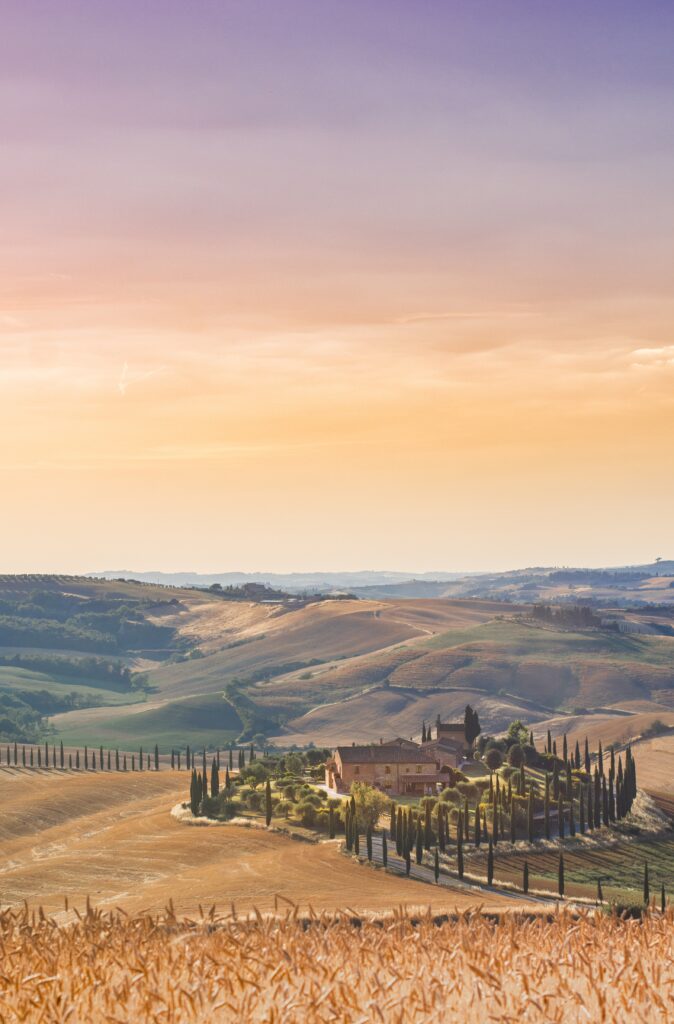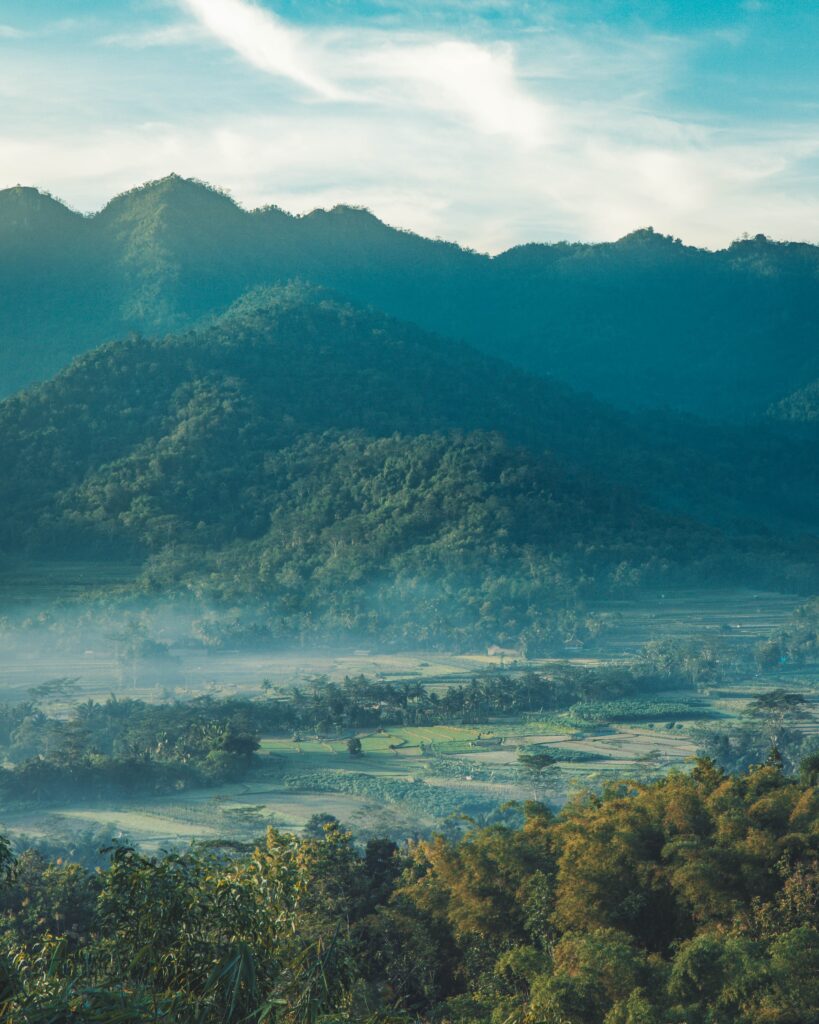In this piece I draw parallels from my personal life, as I liken a move to Italy with investing in forests in the tropics. From photographic visions, through to detailed due diligence in the trenches, and on to progressive impact creation in line with your long-term goals. Grab yourself a cappuccino (if it’s before 10am) and enjoy the article!

From rugbrød to pizza
To bring a bit of lightness to your reading in these first weeks of summer, I thought I would bring you a personal story with both humour and professional twists. Two weeks ago, my family made a cross-border move from Denmark to Italy. As the COVID-situation did for many, it raised some existential questions in my Canadian-Italian family – for us, this was largely centred on, what are we doing in Denmark? Now there were several reasons for us to stay: our more than decade long social network, thriving professional lives, second-to-none social welfare system, the cultural importance of family life, exemplary administrative efficiency, a cycle-friendly and green city, this list goes on…
But at the end of the day, neither of us are Danish, and we knew that we wanted to be closer to family – so, late last year, we started our scoping for a potential move to Italy. There were lots of twists and turns in our decision-making process, but in the end we decided to go for it! As you can imagine, a cross-border move has some significant challenges, not unlike deciding to take the bold step to invest in forests in the tropics. And for a bit of fun, I thought I would draw some parallels – so here they are, the 5 reasons why I think moving to Italy is like investing in forests in the tropics:
1. It’s romantic
The very thought of a move to Italy drums up images of rolling hills lined with cypress trees, old stone farmhouses, winding vineyards, a glass of wine enjoyed at a quaint trattoria overlooking school kids playing in the piazza, and old ladies hanging their laundry out to dry from their terraces. It is captivating, you can visualize yourself in this environment, not just on holiday, but as a fixture on the Italian landscape.
Now transport your thoughts to that of a forest investment in the tropics. Instead, you imagine gorillas grazing, or orangutans swinging from the vines, and the sounds of unnameable birds and insects. You are taken by the potential of this place – growth rates that are 4-5 times that of temperate geographies, the lower operating costs, the impact potential of a sustainable strategy over the status quo in this environment. You can visualize both the commercial value and the social and environmental benefits you can achieve on the tropical landscape.
The romantic images of moving to Italy and investing in forests in the tropics are the first step. They plant the seed, the idea, the potential for an improved situation. It is these romantic notions that will carry you through the more practical and often cumbersome steps of realization.
2. Thorough due diligence is a must
As someone who has done it several times with varying degrees of due diligence, I believe that moving to a country like Italy, from a country like Denmark, requires a significant amount of due diligence. Of course, it depends on the life stage you are at – when I was a carefree, single student, I could take a bit more risk, but now with considerations like family, business, mortgage, etc. more research needs to be done. Things like location, cost of living, local services, taxes, property assessments, weather – these have all been considerations to explore so that we can find the ideal living environment.
It goes without saying that a forest investment in the tropics requires thorough due diligence. The higher the unknowns, the more digging is required. Further, this investment strategy can be likened to my life stage example of moving country – stakes are high: investment capital, unfamiliarity with the target geography/countries, unknown legislation and customary business practices, reputational risk, bio-geo-climatic risk, taxes and currency risk – you need to do your homework so that you can set yourself up for success.
3. Bureaucracy and chaos
The due diligence exercise in moving to Italy (as well as the expert opinion of my Italian husband) informed me that getting things done in Italy is no walk in the park. Compared to Denmark, (where any administrative undertaking can take place at the swipe of a phone, click of a button, or quick call), Italy is substantially less straight forward! Let’s take the example of establishing residency – first there is understanding the national laws, then it is realizing that each region has its own interpretation, then it is the task of trying to find the right person, gather all the right paperwork, and wait. A. Long. Time…. Going back to my last point, thorough due diligence can help you identify bottle necks, and seek out reputable advisors to smooth and expedite the process.
Likewise, operating in tropical geographies often comes with a confusing web of red tape. Understanding which governmental departments oversee different aspects of your business, what licenses, permits, assessments are required for things like land leases, wood export, environmental and social impact assessments. Finding good, local experts and legal, tax and accounting advice is vital. It can help to speed things up, and I don’t mean in the way that brown envelopes speed things up, I mean hiring someone who understands the system, knows the people to contact, and has the time to manage red tape.
4. It’s about the place and the people
It’s worth it. Though moving to Italy from Denmark has been a lot of work, and comes with some compromises, ultimately it is aligned with my higher-level values – and that is to be closer to family. It has been about selecting a location that we can call home, that ‘ticks the boxes’ on things that are important to us – close to family, good services, good climate, etc. And it is about the people. Despite the chaos, Italians are warm and welcoming – they truly want to help. Surrounding ourselves with the right people to help us achieve our goals and to get settled has made all the difference.
Similarly with a forest investment, or larger strategy in the tropics, I argue that two of the most important criteria for success, (both from a commercial and impact perspective), come down to where the investment will take place, and the people you have in your corner. Of course business viability is paramount, but that is for another discussion and is not really related to my Italy analogy! Choosing a general geography, and then optimal opportunities and conditions within that geography is an important undertaking. It determines factors such as climate and soil characteristics, growth rates, and enabling business and political environment. Likewise, building up your trusted team of local advisors, experts and managers takes time, but this can make or break your project, so is critical to get right.
5. Positive impact is inevitable
Already in the first two weeks of being in Italy, I am inching my way towards conversational Italian, enjoying morning walks in the countryside, and watching my children bond with their grandparents. The weather is warm, the food is wonderful, and this is just the beginning. For sure there will be bumps along the road, but our goals are long-term and can suffer the odd stumbling block along the way.
Those venturing into forest investments in the tropics have more than financial gain on their minds, where the impact potential of their investment; that is, the social and environmental benefits that can be achieved carry their own value. Another factor common to forest investments in the tropics is that when they generate this impact, they also often add to long-term commercial sustainability.

I hope you have enjoyed this piece, and that it has given you pause to consider where your visions of an impactful forest investment in the tropics may lead. If you’d like to bounce around a few ideas on this, please reach out, and sign up for my twice weekly newsletter to keep in touch (and get a Theory of Change workbook while you’re at it)!
If Italy is also in your future, give me a call and we can meet for an espresso in the piazza!
Have a great summer,
Arrivederci!





